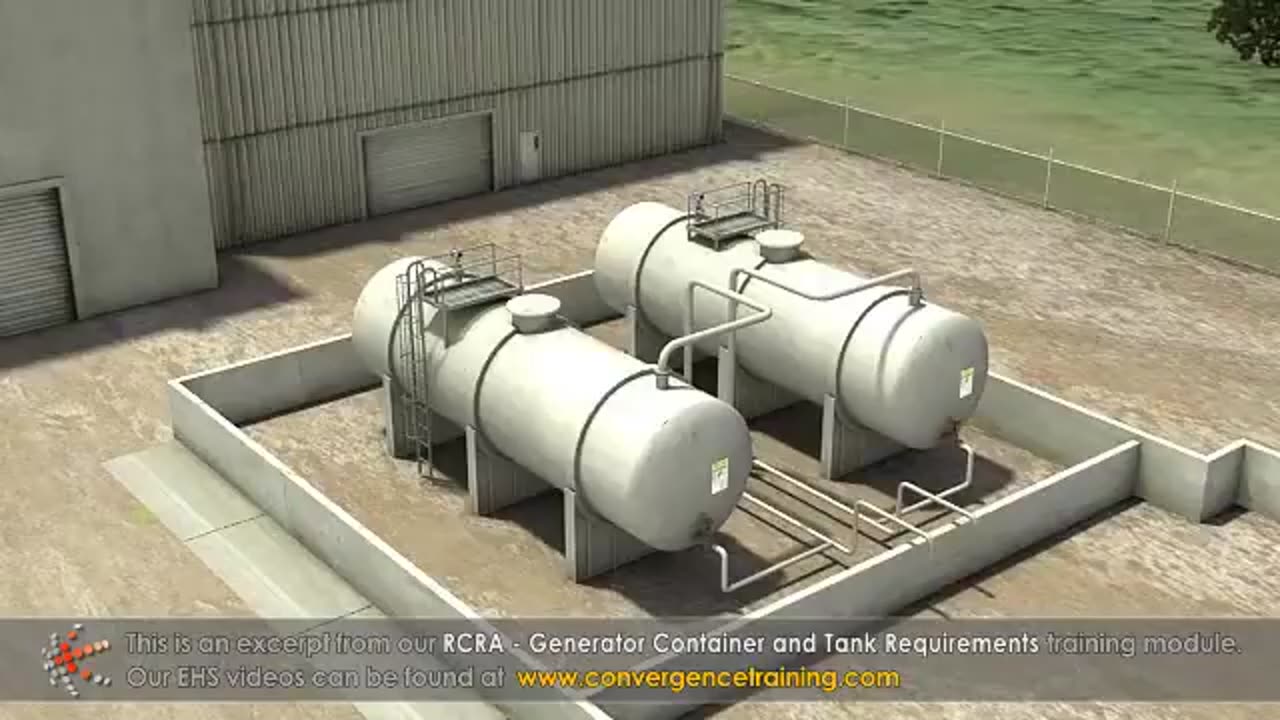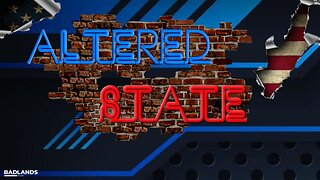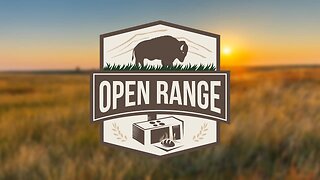Premium Only Content

RCRA - Generator Container and Tank Requirements Training
**RCRA Generator Container and Tank Requirements Training** focuses on educating employees about the proper handling, storage, and management of hazardous waste containers and tanks. This training ensures compliance with RCRA regulations while minimizing risks to health, safety, and the environment. Below is a comprehensive training outline:
---
### **1. Introduction to RCRA and Generator Responsibilities**
- Overview of RCRA regulations and generator categories (LQG, SQG, CESQG).
- Importance of compliance for environmental protection and legal obligations.
- Responsibilities of hazardous waste generators regarding container and tank management.
---
### **2. Container Requirements**
- **Labeling and Marking**:
- Properly labeling all containers with "Hazardous Waste" and accumulation start dates.
- Using labels that include waste type, EPA waste codes, and hazards.
- **Condition of Containers**:
- Ensuring containers are in good condition (no dents, rust, or leaks).
- Prohibiting use of damaged or corroded containers.
- **Compatibility**:
- Storing waste in containers compatible with the waste type.
- Avoiding reactions between waste and container materials.
- **Storage Area Standards**:
- Keeping containers closed unless adding or removing waste.
- Using secondary containment for spill prevention.
- Separating incompatible wastes.
- **Inspections**:
- Conducting weekly inspections of container storage areas.
- Checking for leaks, overfilled containers, and proper labeling.
---
### **3. Tank Requirements**
- **Tank Design and Construction**:
- Ensuring tanks meet RCRA design standards for hazardous waste.
- Using appropriate materials to prevent reactions or leaks.
- **Operating Requirements**:
- Installing level indicators, alarms, and pressure relief systems.
- Maintaining freeboard (space) to prevent overflow.
- **Secondary Containment**:
- Constructing dikes or berms to contain spills or leaks.
- Using double-walled tanks for added protection.
- **Inspections**:
- Daily inspections of tank systems (e.g., corrosion, cracks, monitoring equipment).
- Verifying leak detection systems are functional.
- **Air Emissions Standards**:
- Complying with Subpart CC of RCRA for air emissions from tanks.
- Installing vapor control systems if required.
---
### **4. Accumulation Time Limits**
- **Time Limits by Generator Category**:
- Large Quantity Generators (LQGs): 90-day limit for accumulation.
- Small Quantity Generators (SQGs): 180 days (or 270 days if >200 miles from disposal site).
- Consequences of exceeding accumulation time limits without proper permits.
- Procedures for requesting extensions if needed.
---
### **5. Spill and Leak Response**
- Recognizing and addressing container or tank leaks.
- Steps for containment, cleanup, and reporting spills.
- Proper disposal of cleanup materials as hazardous waste.
- Importance of keeping spill kits readily available.
---
### **6. Documentation and Recordkeeping**
- Maintaining inspection logs for containers and tanks.
- Documenting waste accumulation start dates and labels.
- Retaining records of spill incidents and corrective actions.
---
### **7. Common Violations and Best Practices**
- Examples of non-compliance (e.g., unlabeled containers, open containers, overfilled tanks).
- Best practices for container and tank management:
- Using compatible secondary containment.
- Training employees to handle waste safely.
- Establishing clear procedures for inspections and maintenance.
---
### **8. Training and Certification**
- Who requires training (employees involved in waste generation, storage, and management).
- Annual refresher training for compliance.
- Providing certificates upon successful completion.
---
### **9. Closing and Q&A**
- Recap of container and tank management responsibilities.
- Open discussion for addressing facility-specific concerns.
- Distribution of handouts, checklists, and resources for ongoing compliance.
---
**Optional Materials**:
- **Inspection Checklists**: Customized for containers and tanks.
- **Training Slides**: Visual aids for presentations.
- **Quizzes**: To test understanding of key concepts.
- **Emergency Response Scenarios**: Hands-on practice for spill and leak response.
Would you like help creating specific materials like checklists, visuals, or customized training modules?
-
 7:58
7:58
HSESafetyInformation
7 months agoAuthentic Peshawari Rosh _ Namkeen Gosht Recipe __ Traditional KPK and Baluchistan
681 -
 33:40
33:40
Jamie Kennedy
4 hours agoEp 222 Processing the Loss of Charlie Kirk | HTBITY with Jamie Kennedy
32.6K11 -
 1:32:05
1:32:05
Badlands Media
19 hours agoAltered State S3 Ep. 46: Tactical Nukes, Thermite, and the 9/11 Puzzle
52.6K5 -
 9:18
9:18
ARFCOM News
9 hours ago $0.88 earnedNSSF "Celebrates" ATF Partnership | Glocks BANNED | Redundant Spooky Boi Ban
26.7K8 -

LFA TV
17 hours agoLFA TV ALL DAY STREAM - WEDNESDAY 9/17/25
299K61 -
 1:00:00
1:00:00
BEK TV
1 day agoAPRIL LUND: FAITH, FOCUS, AND THE ROAD TO THE 2028 OLYMPIC MARATHON
19.8K -
 37:15
37:15
Stephen Gardner
4 hours ago🔥Trump ERUPTS After Obama’s Charlie Kirk Comments!
32.3K64 -
 13:40:35
13:40:35
Total Horse Channel
15 hours ago2025 WDAA Western Dressage World Championship Show | Day Two | Arena One
24.6K -
 1:14:40
1:14:40
Glenn Greenwald
5 hours agoThe Right Wages Its Own Cancel Culture War: Lee Fang, Thomas Chatterton Williams, and Leighton Woodhouse on the State of Civil Discourse and More | SYSTEM UPDATE #517
168K77 -
 1:03:04
1:03:04
BonginoReport
7 hours agoBomb Squad Investigates Package at TPUSA HQ - Nightly Scroll w/ Hayley Caronia (Ep.136)
206K87